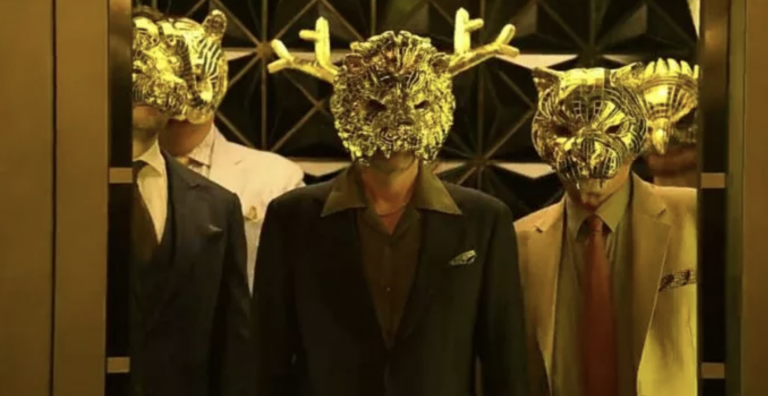The allegorical series, Squid Game, tries to highlight class inequality and its real world consequence. One can’t help but wonder, then, who do the VIPs (Very Important Persons) represent? It’s implied throughout the series that the VIPs are the rich and powerful. So rich and powerful, in fact, that they are above the law to the degree they can bring people to their private island and run a fight-to-the-death Mad Max style of game.
We are reminded time and time again that the VIPs only watch, with the exception of the old man. They pull the strings, place the bets, and leave, temporarily satisfied after witnessing strangers kill themselves for their pleasure.
There are five VIPs, not counting Oh Il-nam, the old man. The specific nationalities are, I believe, to be unimportant. I think we can all infer them based on their accents or language. However, what is important here is that the VIPs are everywhere, and that class inequality too is everywhere.
In fact, while countries outwardly project a sense that they’re different and unique, they all share this very common trait. That is, there exists an aristocratic level who operates and exists beyond the rules that apply to everybody else.
And in this microcosm, the real life-or-death decision making take place, affecting everybody else. Simultaneously, the people whose lives are affected are completely unable to voice their opinions or thoughts. They have agreed to participate (albeit unwittingly knowing what the games really will be and the consequences), and do not have any real choice.
Even the supposed rule that the games are fair, they are not fair.
For example, during the cross the glass bridge game, one of the VIPs remarked how one of the players seem to know which glass will break. And in that instance, the Front Man changes the environment, which ultimately resulted in the player’s death.
This is as if some god was overlooking Earth and decided to hurl an asteroid toward the planet just because of boredom. The writers of the series wanted to highlight how the VIPs’ decisions are arbitrary in nature. That their motivation, although primarily driven for the benefit of their entertainment and pleasure, is really whatever fancies them at the very moment.
Finally, we also see that the VIPs are likely cowards. If the opportunity ever presented where their own lives were in danger, they are likely to act in their own best self interests.
When Hwang Jun-ho explores the Squid Game facilities, he was told that there was a secret escape tunnel built for the VIPs. As well, there were explosives rigged to blow up the entire place. This is likely to ensure that no evidence would ever link the Squid Game back to them.
We see this kind of double standard in the real world too. One set of rules for the powerful and elite, and another set of rules for the rest of us.
We are constantly reminded of this in Squid Game that the VIPs exist outside of the games, almost like they were looking into a fish bowl. Their almost omnipotent powers of being able to manipulate the fate of the players feels unfair in every way.
The players themselves are also unaware of the VIPs existence. To the players, they believe they are playing in a game and that is the end of it. Little do they realize that they themselves were betted on, like horses on a race track.
Their lack of understanding of the overall picture infuriates Gi Hun when he realizes at the very end while talking to the old man what the Squid Games were all about.
The revelation that the games were nothing more than a sort of entertainment for the very rich and powerful is sobering as Gi Hun reflects on the friends he met and lost in the games’ arena.
The audience must wonder, “Are we ourselves simply players in a game that we can’t see?”
With the show’s overarching theme of class inequality, this brings to light that perhaps we think the Squid Game is what the world is about, when in fact we’re merely pawns serving a different purpose. A purpose that’s hidden from our eyes.
Reading the various analyses online, I think this thought isn’t brought up enough.
How is the audience supposed to feel about the VIPs, then?
I think the writers want to highlight the callousness of the VIPs through the dialogue they have with each other. Anger is a pretty obvious choice here, but I think the shows’ writer want to highlight the deeper systemic issues with how the rich and the powerful don’t relate with the struggles of the working class.
The Front Man says it best when he considers the players simply “horses” that the VIPs bet on.
I don’t think the writers of the show have any answers to how the VIPs and the players can coexist without the powerful taking advantage of the lower classes. This is certainly a problem I’m interested to see how Gi Hun might handle if the show continues with a second season.
